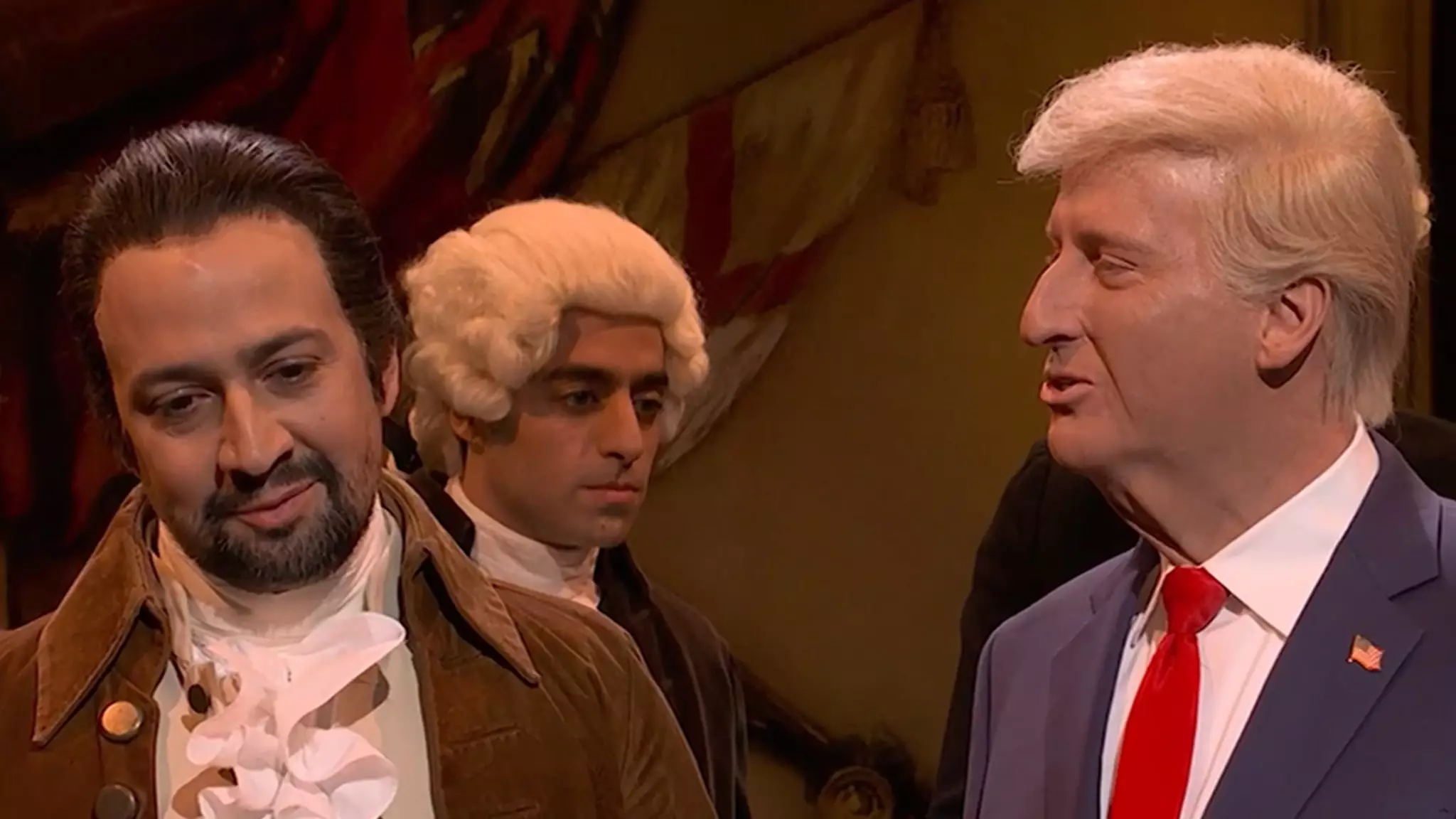In an era where political satire has become a staple of American culture, “Saturday Night Live” has continued to thrive as a platform that humorously critiques the political landscape. The recent cold open featuring Lin-Manuel Miranda, alongside a portrayal of former President Trump by James Austin Johnson, encapsulates the essence of this ongoing satire. Miranda’s reimagined rendition of significant lyrics from “Hamilton,” with a quick interruption by Trump’s comedic arrogance, signifies a potent satire on current political dynamics and sets the tone for the rest of the skit. The notion that America might welcome a “king” aligns with fears many have expressed regarding the Trump administration’s attempts to consolidate power.
One of the crucial elements of the sketch revolves around the sweeping removal of Diversity, Equity, and Inclusion (DEI) initiatives orchestrated by Trump’s administration. This move is portrayed as a regressive step towards a past era, captured in the ironic comment about workplaces reverting to the makeup of the beloved sitcom “The Office.” The decision to erase any references to the Tuskegee Airmen from the Air Force Academy’s curriculum until it complies with Trump’s orders highlights a troubling side of governance that employs political correctness as a scapegoat for systemic inequities. Through this comedic lens, SNL reveals the absurdity and danger of eschewing historical representation in favor of a homogenized narrative that many Americans deem familiar.
SNL’s comedic reflections on Cabinet positions also hold weight, particularly the casting of Pete Hegseth as Secretary of Defense. The humor derived from commentary on the physical appearance of potential impersonators juxtaposes the gravitas of the office with the frivolity of unqualified appointments. Such humor underscores the problems of representation and expertise in leadership roles while also poking fun at the often superficial aspects of political theater. In a country where political identities are frequently reduced to caricatures, reflecting on this aspect allows audiences to grapple with the absurdity of current governance.
The mention of Elon Musk’s controversial salute further exemplifies the depth of satire at play in this SNL episode. Using humor to dissect real-life events, SNL calls attention to moments that spark debates on morality and intentions, pushing the audience to consider the ramifications of celebrity influence on politics. By reflecting on whether Musk’s gesture was a Nazi salute or not, SNL probes into the precarious intersection of fame, power, and ethical accountability.
The SNL cold open featuring Miranda and Johnson does more than just entertain; it acts as a critical commentary on the growing absurdities in political discourse. Through humor, it invites reflection on pressing issues of representation, governance, and historical accuracy. As the nation navigates controversial policies and divisive leadership, the power of satire emerges as a tool for introspection—a reminder that laughter can often highlight the harsh truths of our reality, prompting us to question the direction in which we are heading.

